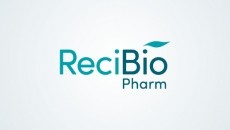Medical House autoinjector project into next phase
(TMH) is entering the second phase of a development project for a
European defence agency involving its AutoSafety Injector (ASI)
disposable autoinjector technology for the administration of
pharmaceutical products in prefilled syringes.
In December 2005 TMH was commissioned by the undisclosed government agency to develop a solution based on the ASI technology platform for the emergency administration of specific pharmaceutical compounds.
The resulting concept was well received, according to the firm, and the next phase requires TMH to develop and manufacture "devices, according to defined operational and functional requirements, for technical assessment" over an expected period of 12 months.
"It's a serious project now," commented the UK company's executive chairman Ian Townsend in an interview with In-PharmaTechnologist.com.
The ASI is TMH's first autoinjector system, applicable both to elective therapies and emergency use.
The company had already built a base in needle-free injection devices, which are in use and have netted agreements with the Swiss companies Serono and BioPartners (both for delivery of human growth hormone).
The ASI technology can incorporate a wide range of drugs and formulations in standard pre-filled syringes.
Use of the existing formulation and packaging enables partners to simplify and accelerate the process of regulatory approval and market launch, ASI notes.
Emergency applications for autoinjector devices might include battlefield use (e.g. for administering antidotes to chemical or biological agents) or the treatment of life-threatening conditions such as anaphylactic shock.
Elective use would apply to chronic conditions such as multiple sclerosis, where patients need to inject fixed doses of a drug on a daily or otherwise regular basis.
According to Townsend, there are only five or six companies worldwide with autoinjector technology, at a time of increasing demand for the devices from the pharmaceutical industry.
He believes the ASI autoinjector has the edge, though, on simplicity of design, reliability and ease of use.
The device incorporates only five or six components, offering a cheap, easy-to-assemble alternative to other autoinjectors, most of which require 10-20 components, Townsend says.
Another key feature is that the needle remains hidden throughout administration of the drug, easing any potential difficulties with needle aversion.
After dosing, the needle retracts automatically, reducing the risk of needlestick injuries or disease transmission associated with used needles.
TMH has also addressed the problem of syringes breaking when autoinjectors are used to administer viscous drugs, which requires more force and a bigger spring.
The compression device developed for the ASI autoinjector means "you can inject just about anything you want," Townsend commented.
The most advanced of TMH's partnerships for the ASI autoinjector is with Martindale Products and Specials (part of Cardinal Health), for use of the device with an undisclosed pharmaceutical product in the UK under an initial five-year contract.
The UK firm expects to earn revenues of £3m (€4.4m) from this deal over the initial five-year supply period.
A product incorporating the ASI autoinjector and Martindale's prefilled syringe should be on the UK market shortly, with the potential for Martindale to extend the relationship to other drugs and territories.
Townsend said he would be surprised if TMH's partner did not take up this option.
Last December, the company signed a development, licensing and supply agreement for the AutoSafety Injector with "a leading global pharmaceutical partner," for administration of an again undisclosed drug.
TMH's revenues from this deal, consisting of development, supply and technology access fees, are projected at roughly £27 million over an initial five-year term.
Townsend said TMH was now moving into the commercialisation phase of this partnership and was hoping to see a product launch in early 2008.












